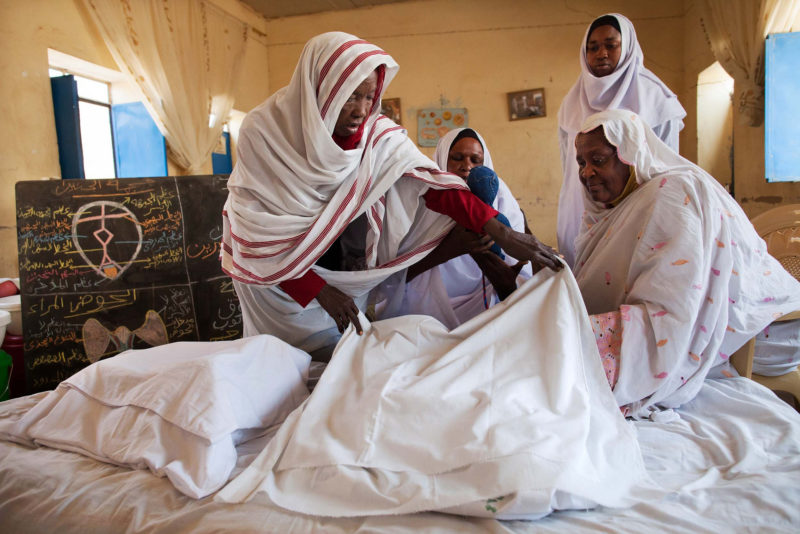Current policies to protect girls at risk of genital mutilation are invasive and traumatising, study finds

© Albert Gonzalez Farran, UNAMID
Image ©Albert Gonzalez Farran, UNAMID
Current policies aimed at protecting European African girls at risk of genital mutilation – including compulsory genital examinations and persistent questioning by police – can be invasive and traumatic for the girls involved and their families, new research in Sexual and Reproductive Health Matters finds.
Guidelines to detect female genital mutilation (FGM) and awareness-raising campaigns are built on the assumption that far more girls are being subjected to FGM than is arguably the case, says study author, Professor Sara Johnsdotter of Malmö University. European African families, especially the girls who can be subject to genital exams carried out without the consent or knowledge of their legal guardians, are paying the price for this hyper-vigilance.
Professor Johnsdotter examined records of almost all criminal investigations of FGM in Sweden since the practice was banned in 1982 (that is, 122 police files, obtained under a strict obligation to observe confidentiality). Reports of suspected FGM reach the police from citizens and from professional groups such as teachers, healthcare providers and social workers.
Formal criminal investigations were opened in 98 cases. Of these, one resulted in the conviction of a man for having stated his intention to have FGM carried out on his daughters in Nigeria. Thirty-six were closed without a genital examination of the girl because suspicions were vague or there was not enough evidence of a committed or pending crime.
In 43 of the 61 cases involving genital examinations, experts could not find any signs of FGM and the investigations were closed. In 16 of the 18 cases where examination showed FGM, the investigations were closed and the cases were not taken to court either for reasons that were unclear or because the investigators concluded that FGM had been performed prior to migration. Two cases were taken to court, resulting in a conviction and prison sentence for the girl’s mother in one case and the girl’s father in the other. Both these cases originated from reports by the girls themselves.
Professor Johnsdotter said: “Without claiming that these figures are statistically significant, there may be a point to be made from the fact that no illegal FGM case has been identified and led to prosecution as a result of compulsory genital examinations. The only two cases of illegal FGM that have reached court originated with the girls themselves turning to authorities and telling their stories. Thus, building trust – not prioritising punitive powers – seems to be the better way to handle girls’ and young women’s legal rights when it comes to FGM.”
Many studies show growing opposition to FGM among people who have migrated to Europe, and there is little evidence to support the assertion that it is prevalent. However, there is widespread belief that FGM is secretively practised on a large scale among some immigrant groups in Europe.
“It’s not a crime to be part of a family from Somalia or any other country where girls are subjected to FGM, and it’s not illegal to travel to any of these countries. Yet our systems consistently react as if this were the case. In practice, some of today’s strategies in Europe to tackle FGM lead to ethnic and racial profiling,” Professor Johnsdotter said. “We need to find ways to respond to FGM that are less harmful to the girls and young women the interventions intend to protect.”

 China
China